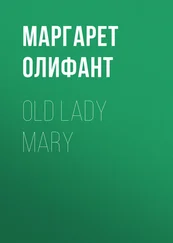Маргарет Олифант - Brownlows
Здесь есть возможность читать онлайн «Маргарет Олифант - Brownlows» — ознакомительный отрывок электронной книги совершенно бесплатно, а после прочтения отрывка купить полную версию. В некоторых случаях можно слушать аудио, скачать через торрент в формате fb2 и присутствует краткое содержание. Жанр: foreign_prose, literature_19, foreign_antique, на английском языке. Описание произведения, (предисловие) а так же отзывы посетителей доступны на портале библиотеки ЛибКат.
- Название:Brownlows
- Автор:
- Жанр:
- Год:неизвестен
- ISBN:нет данных
- Рейтинг книги:5 / 5. Голосов: 1
-
Избранное:Добавить в избранное
- Отзывы:
-
Ваша оценка:
- 100
- 1
- 2
- 3
- 4
- 5
Brownlows: краткое содержание, описание и аннотация
Предлагаем к чтению аннотацию, описание, краткое содержание или предисловие (зависит от того, что написал сам автор книги «Brownlows»). Если вы не нашли необходимую информацию о книге — напишите в комментариях, мы постараемся отыскать её.
Brownlows — читать онлайн ознакомительный отрывок
Ниже представлен текст книги, разбитый по страницам. Система сохранения места последней прочитанной страницы, позволяет с удобством читать онлайн бесплатно книгу «Brownlows», без необходимости каждый раз заново искать на чём Вы остановились. Поставьте закладку, и сможете в любой момент перейти на страницу, на которой закончили чтение.
Интервал:
Закладка:
The way that Sara made acquaintance with the little dweller at her gate was in this wise. It was the day after the dinner-party, when the Motherwells were still at Brownlows. Sara had gone out to convey some consolation to old Betty at the gate, who was a rheumatical old woman. And she thought she had managed to escape very cleverly out of Lady Motherwell’s clutches, when, to her horror, Sir Charles overtook her in the avenue. He carried in his manner and appearance all the dignity of a man whose mind is made up. He talked very little, certainly, to begin with—but that was his way; and he caressed his abrupt little black mustache as men do caress any physical adjunct which is a comfort to them in a crisis. Sara could not conceal it from herself that something was coming, and there was no apparent escape for her. The avenue was long; there was nobody visible coming or going. Had the two been on a desert island, Sir Charles could scarcely have had less fear of interruption. I do not pretend to say that Sara was entirely inexperienced in this sort of thing, and did not know how to snub an incipient lover or get out of such a dilemma in ordinary cases; but Sir Charles Motherwell’s was not an ordinary case. In the first place, he was staying in the house, and would have to continue there till to-morrow at least, whatever might happen to him now; and in the second, he was obtuse, and might not understand what any thing short of absolute refusal meant. He was not a man to be snubbed graciously or ungraciously, and made to comprehend without words that his suit was not to be offered. Such a point of understanding was too high for him. He was meditating between himself and his mustache what he had to say, and he was impervious to all Sara’s delicate indications of an indisposition to listen. How could he tell what people meant unless they said it? Thus he was a man with whom only such solid instruments as Yes and No were of any use; and it would have been very embarrassing if Sara, with at least twenty-four hours of his society to look forward to, had been obliged to say No. She did the very best she could under the emergency. She talked with all her might and tried to amuse him, and if possible lead him off his grand intention. She chatted incessantly with something of the same feelings that inspired Scherazade, speaking against time, though not precisely for her life, and altogether unaware that, in so far as her companion could abstract his thought from the words he was about to say, when he could find them, his complacent consciousness of the trouble she took to please him was rising higher and higher. Poor dear little thing! he was saying to himself, how pleased she will be! But yet, notwithstanding this comfortable thought, it was a difficult matter to Sir Charles in broad daylight, and with the eyes of the world, as it were, upon him, to prevail upon the right words to come.
They were only half way down the avenue when he cleared his throat. Sara was in despair. She knew by that sound and by the last convulsive twitch of his mustache that it was just coming. A pause of awful suspense ensued. She was so frightened that even her own endeavor to ward off extremities failed her. She could not go on talking in the horror of the moment. Should she pretend to have forgotten something in the house and rush back? or should she make believe somebody was calling her and fly forward? She had thrown herself forward on one foot, ready for a run, when that blessed diversion came for which she could never be sufficiently thankful. She gave a start of delightful relief when they came to that break in the trees. “Who can that be?” she said, much as, had she been a man, she would have uttered a cheer. It would not have done for Miss Brownlow to burst forth into an unlooked-for hurrah, so she gave vent to this question instead, and made a little rush on to the grass where that figure was visible. It was a pretty little figure in a red cloak; and it was bending forward, anxiously examining some herbage about the root of a tree. At the sound of Sara’s exclamation the stranger raised herself hurriedly, blushed, looked confused, and finally, with a certain shy promptitude, came forward, as if, Sara said afterward, she was a perfect little angel out of heaven.
“I beg your pardon,” she said; “perhaps I ought not to be here. I am so sorry; but—it was for old Betty I came.”
“You are very welcome to come,” said Sara, eagerly—“if you don’t mind the damp grass. It is you who live at Mrs. Swayne’s? Oh, yes, I know you quite well. Pray, come whenever you please. There are a great many pretty walks in the park.”
“Oh, thank you!” said little Pamela. It was the first time she had seen the young great lady so near, and she took a mental inventory of her, all that she was like and all that she had on. Seeing Miss Sara on foot, like any other human creature, was not a thing that occurred every day; and she took to examining her with a double, or rather triple, interest—first, because it was Miss Sara, and something very new; second, to be able to describe minutely the glorious vision to her mother; and thirdly out of genuine admiration. How beautiful she was! and how beautifully dressed! and then the tall gentleman by her side, so unlike any thing Pamela ever saw, who took off his hat to her—actually to her ! No doubt, though he was not so handsome as might have been desired, they were going to be married. He must be very good, gallant, and noble, as he was not so very good looking. Pamela’s bright eyes danced with eagerness and excitement as she looked at them. It was as good as a play or a story-book. It was a romance being performed for her benefit, actually occurring under her very eyes.
“I know what you were doing,” said Sara, “but it is too early yet. ’Round the ashen roots the violets blow’—I know that is what you were thinking of.”
Pamela, who knew very little about violets, and nothing about poetry, opened her eyes very wide. “Indeed,” she said, anxiously, “I was only looking for some plantain for Betty’s bird—that was all. I did not mean to take any—flowers. I would not do any thing so—so—ungrateful.”
“But you shall have as many violets as ever you like,” said Sara, who was eager to find any pretense for prolonging the conversation. “Do come and walk here by me. I am going to see old Betty. Do you know how she is to-day? Don’t you think she is a nice old woman? I am going to tell her she ought to have her grandchild to live with her, and open the gate, now that her rheumatism has come on. It always lasts three months when it comes on. Your Mr. Swayne’s, you know, goes on and off. I always hear all about it from my maid.”
When she paused for breath, Pamela felt that as the tall gentleman took no part in the conversation, it was incumbent upon her to say something. She was much flattered by the unexpected grandeur of walking by Miss Brownlow’s side, and being taken into her confidence; but the emergency drove every idea out of her head, as was natural. She could not think of any thing that it would be nice to say, and in desperation hazarded a question. “Is there much rheumatism about here?” poor Pamela said, looking up as if her life depended on the answer she received; and then she grew burning red, and hot all over, and felt as if life itself was no longer worth having, after thus making a fool of herself. As if Miss Brownlow knew any thing about the rheumatism here! “What an idiot she will think me!” said she to herself, longing that the earth would open and swallow her up. But Miss Brownlow was by no means critical. On the contrary, Sara rushed into the subject with enthusiasm.
“There is always rheumatism where there are so many trees,” she said, with decision—“from the damp, you know. Don’t you find it so at Motherwell, Sir Charles? You have such heaps of trees in that part of the county. Half my poor people have it here. And the dreadful thing is that one doesn’t know any cure for it, except flannel. You never can give them too much flannel,” said Sara, raising her eyes gravely to her tall companion. “They think flannel is good for every thing under the skies.”
Читать дальшеИнтервал:
Закладка:
Похожие книги на «Brownlows»
Представляем Вашему вниманию похожие книги на «Brownlows» списком для выбора. Мы отобрали схожую по названию и смыслу литературу в надежде предоставить читателям больше вариантов отыскать новые, интересные, ещё непрочитанные произведения.
Обсуждение, отзывы о книге «Brownlows» и просто собственные мнения читателей. Оставьте ваши комментарии, напишите, что Вы думаете о произведении, его смысле или главных героях. Укажите что конкретно понравилось, а что нет, и почему Вы так считаете.












